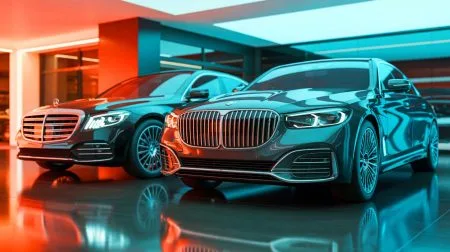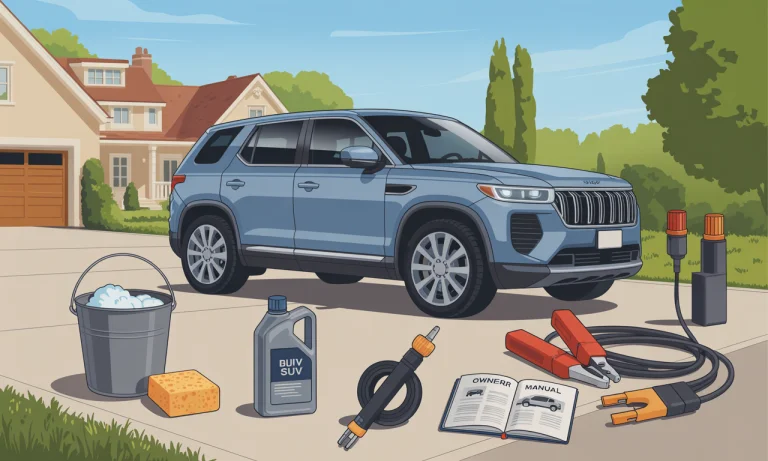The first days behind the wheel of a new SUV, whether a Toyota, Ford, or Hyundai, carry the thrill of discovery and the quiet weight of responsibility. Each engine start promises adventure, but the real test unfolds in the rhythm of regular care. Across city streets and winding backroads, new owners—like Claire, who swapped her compact Honda for a sturdy Subaru—quickly learn that behind every smooth drive is a series of essential, sometimes overlooked, maintenance steps. Often inspired by stories of experienced drivers or cautionary tales from neglected Chevrolets or Jeeps, fresh owners recognize that the secret to longevity, safety, and strong resale value begins not with the latest upgrade, but with a commitment to consistent care. This narrative guide explores the pivotal, practical routines that ensure your SUV—be it a Nissan, Volkswagen, or Kia—remains ready for whatever the road may bring.
Regular Maintenance Checks: The Unsung Guardians of the SUV Experience
Every SUV owner eventually becomes familiar with the quiet rituals—checking tire pressure by the light of dawn, scanning for brake wear before a weekend escape, topping off vital fluids in a bustling parking lot. These routine checks act as invisible guardians, silently extending the life and reliability of your SUV. For Claire, her father’s advice about “listening” to the car’s subtle signals became a mantra. Inspections also reveal risks before they escalate, sparing the wallet and the weekend plan. Whether behind the wheel of a rugged Toyota or an urban-dwelling Kia, it’s these acts of diligence that separate carefree journeys from unplanned repairs. Even something as simple as regular windshield wiper renewal can make the difference on a rain-shadowed freeway.
| Item Checked | Why It’s Important | How Often? |
|---|---|---|
| Tires (pressure/tread) | Safety, fuel efficiency, handling | Monthly |
| Brake system | Critical for stopping, prevents accidents | Every 6 months |
| Fluids (oil, coolant, brake, transmission) | Engine and system longevity | Monthly |
| Lights and wipers | Visibility in bad weather/at night | Quarterly |
SUV Maintenance Schedules: More Than a Calendar Reminder
The maintenance schedule detailed in each owner’s manual is more than a series of dates—it’s a roadmap to reliability, as any seasoned Nissan or Volkswagen driver could attest. Claire marked her service milestones not just in her phone, but with the trusted guidance found on LeftLaneNews’ car maintenance guide. Oil changes every few thousand miles, fresh air filters with the change of seasons, systematic tire rotations—these appointments with your trusted mechanic forestall breakdowns and keep even pre-owned SUVs running with surprising smoothness. Dealerships often tout their expertise, but savvy owners compare costs and build lasting relationships with independent repair shops for personalized, trustworthy care. Both paths are valid, as long as the routine isn’t neglected—the vehicle always remembers.
Troubleshooting Common SUV Problems: Listening Before It’s Too Late
At some point, every owner hears an unfamiliar rattle or sees a warning light flicker just as they pull onto the interstate. The art of timely troubleshooting—catching issues before they escalate—can define the SUV ownership experience. Claire once ignored a slight vibration in her Ford’s steering, only to discover a minor wheel misalignment that, left unchecked, could have ruined a road trip. Learning the basic signs of trouble and using resources like engine maintenance signs lets responsible drivers intervene early, saving money and headaches. For more on engine care, the engine maintenance tips on LeftLaneNews have become staple reading for SUV enthusiasts. An attentive ear—often honed through shared stories on forums and roadside stops—remains one of the most valuable tools an owner possesses.
| Warning Sign | Potential Issue | Recommended Action |
|---|---|---|
| Squealing brakes | Worn brake pads | Inspect/replace pads |
| Engine light on | Sensor or emissions issue | Diagnostic check |
| Steering vibration | Alignment or tire problem | Service alignment/check tires |
DIY SUV Maintenance: Small Habits with Lasting Rewards
For many, the most empowering journey is learning what can be done at home—even in a busy city street or driveway. Checking battery terminals for corrosion, cleaning bird droppings before they damage paint, or swapping out old windshield wipers—all of these form the backbone of confident, hands-on care. Claire, after joining a local motor club, shared tales of changing a flat on her Subaru outside a hiking trail, buoyed by YouTube tutorials and a good flashlight. Resources like maintenance tips for trucks and SUVs offer actionable advice, while club memberships foster both community and peace of mind during unplanned emergencies. Those first successful DIY fixes transform wary beginners into seasoned SUV stewards.
Professional Inspections: Trust, Expertise, and the Science of Preventive Care
No matter how careful, there are moments when only a professional’s eye will do—major services, timing belt replacements, or when technology outpaces the owner’s technical know-how. Through the years, Claire learned that mixing DIY with expert oversight offered the best results. Veteran mechanics, especially those accredited by organizations like ASE or AAA, catch hidden trouble and offer strategic advice tailored to each make—often with a specialty in renowned brands such as Ford, Jeep, or Volkswagen. It’s the blend of regular home care and scheduled professional review, as detailed in the most complete SUV buying and care guides for 2025, that allows an SUV to perform at its best throughout its service life. This equilibrium keeps adventure within easy reach, rather than stuck on the shoulder.
Extending SUV Lifespan: From Humdrum Errands to Epic Journeys
Every SUV has a story—recent models from Toyota and Hyundai ferried families on cross-country routes, while an aging Jeep helped a small business through its early days, a story chronicled in the essential trucks guide for small businesses. Waxing the bodywork against road grime, keeping records neatly organized in the glovebox, and understanding the subtle differences between service costs for Chevrolet versus Kia—all play a role in transforming an ordinary SUV into a companion for decades. Current trends reveal that attentive maintenance consistently outperforms even the priciest add-ons or features. As vehicle technologies evolve, guides like accessories for truck and SUV versatility and advances in safety features for 2025 bring new dimensions to regular upkeep—making each mile smoother and safer for all on board.
| Brand | Known for | Maintenance Highlight |
|---|---|---|
| Toyota | Longevity, reliability | Regular oil changes, timing belt checks |
| Ford | Innovative features | Professional diagnostics for new tech |
| Honda | Efficient engines | Fluid checks and tire rotation |
| Chevrolet | Versatility | Inspect suspension, frequent filter swaps |
| Nissan | Urban drivability | Monitor brake and battery health |
| Jeep | Off-road capability | Tire and undercarriage inspections |
| Hyundai/Kia | Value for money | Stick to dealer-recommended service |
| Subaru | Adventure-ready AWD | Check AWD system and fluids |
| Volkswagen | European engineering | Inspect electronics and emissions system |
Frequently Asked Questions about SUV Maintenance
What’s the most important first maintenance step for new SUV owners?
Getting acquainted with your owner’s manual sets the foundation. Understanding the maintenance schedule and core recommendations lets you anticipate needs and prevents common pitfalls from the start.
Do dealerships or independent mechanics offer better service for SUVs?
Both have merits. Dealerships specialize in your brand with advanced resources, while independent shops often offer lower costs and more personal service. Building trust with one provider over time can be more valuable than switching between many.
How can I minimize maintenance costs while ensuring my SUV’s longevity?
Follow the recommended schedule closely, use quality parts, and address small issues immediately. DIY tasks—like cleaning, checking tires, and keeping records—reduce professional service intervals and prevent major expenses.
Are there unique tips for maintaining hybrid or electric SUVs?
As newer models from Toyota, Hyundai, and others enter the market, battery system checks and software updates become important. Resources like electric car maintenance costs and benefits of 2025 electric trucks and SUVs provide guidance for owners navigating new technologies.
Where can I learn more about advanced SUV care and performance?
For detailed strategy and updates, guides on buying and caring for SUVs and maintenance basics offer trusted advice, alongside firsthand stories from owners and experts alike.
Did you like it? 4.4/5 (27)







